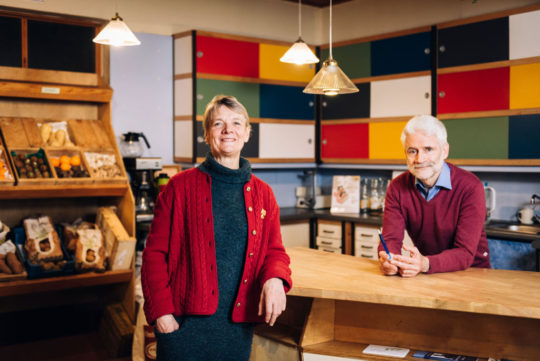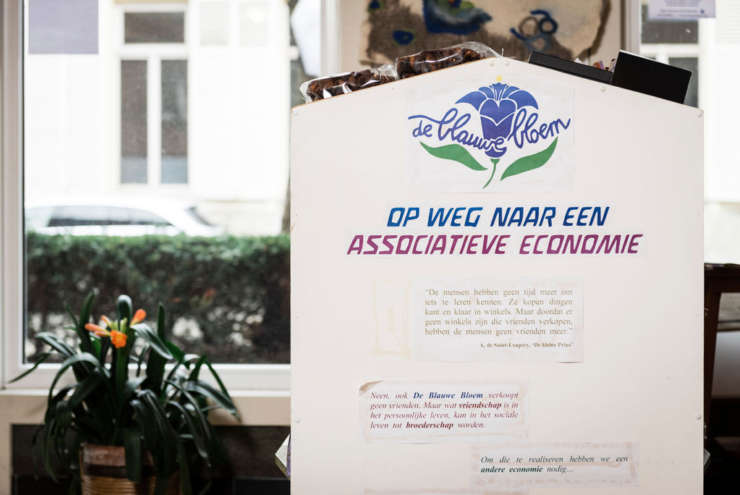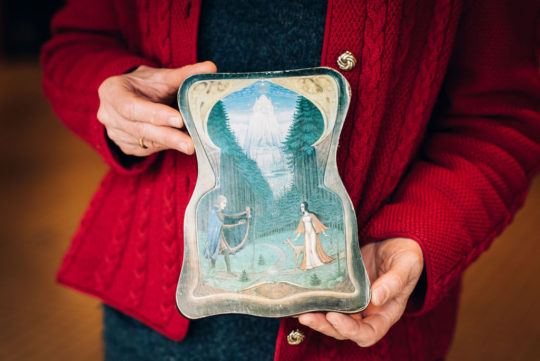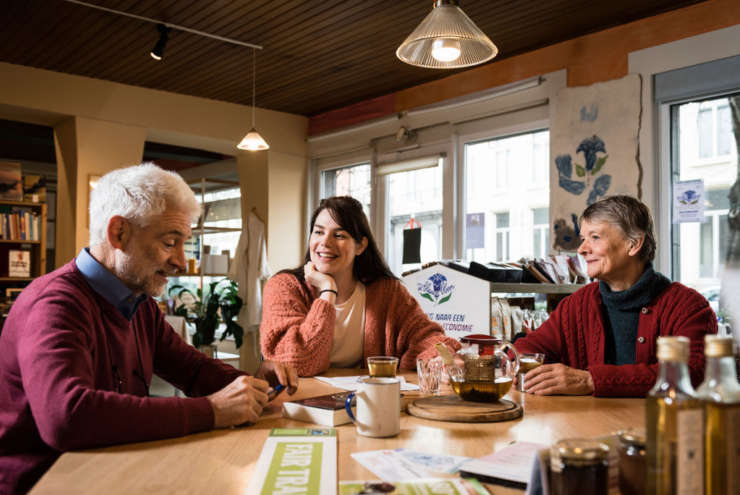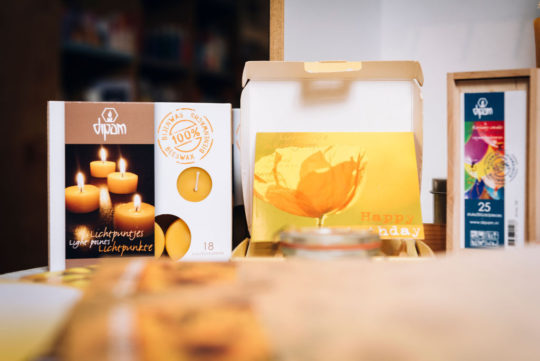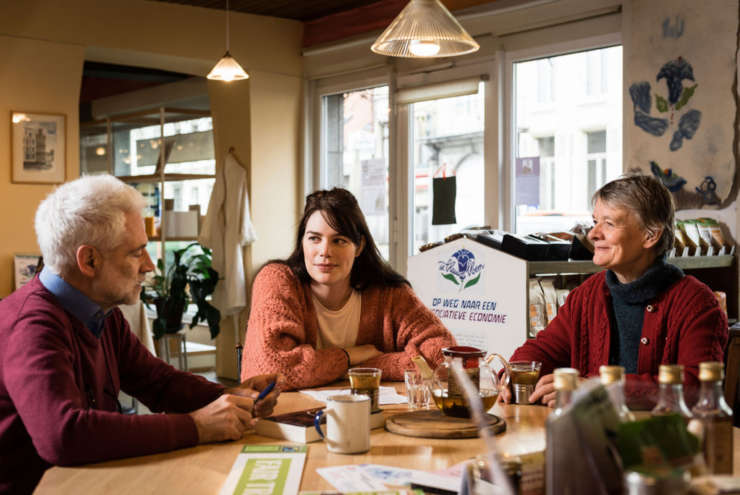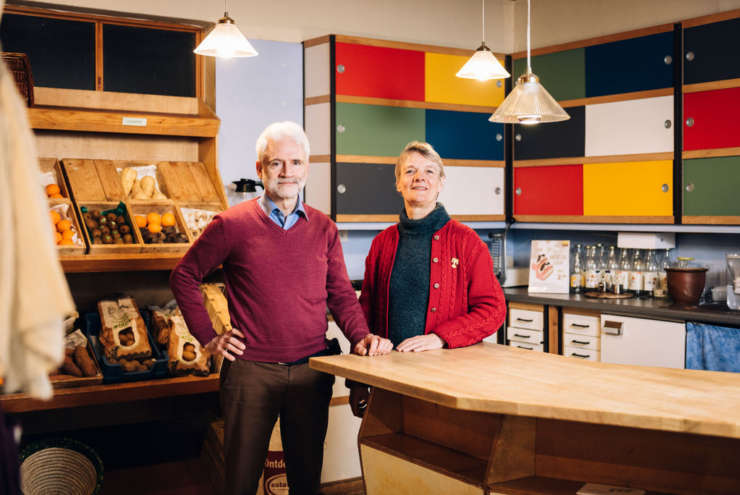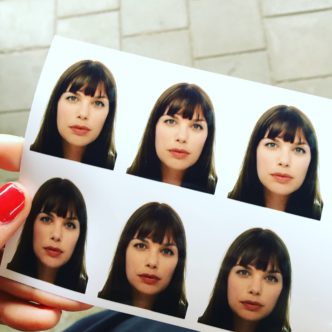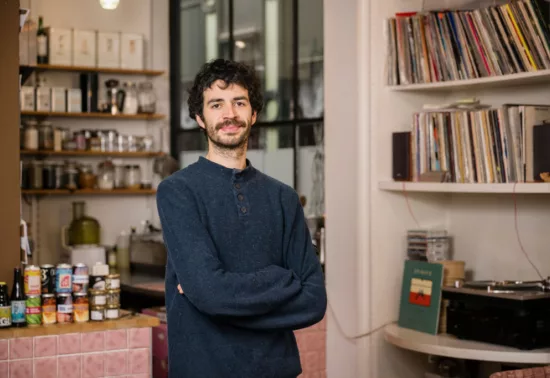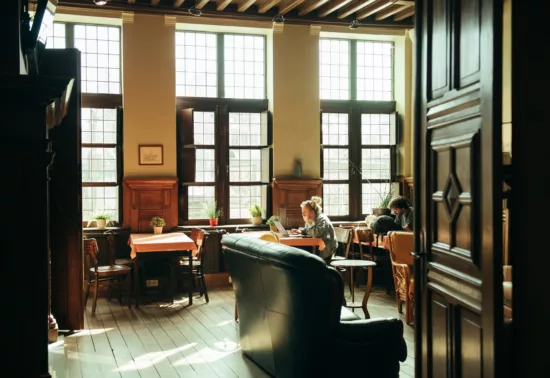The essence of ‘De Blauwe Bloem’ can be put into the words of Albert Einstein: ‘No problem can be solved from the same level of consciousness that created it.’
Luuk: “On a large scale, we see environmental pollution, climate change and poverty, but as long as people keep purchasing their products at department stores, those problems won’t be solved. The capitalistic principle has been superseded in that sense. We don't want to become competitors or strive for our own profits. It’s time for something new. By letting people work together in the economy, we strive for a certain savoir-vivre.”
Mia: “With the shop we see that people start to think differently about money, the portrayal of mankind and social issues. Many play a waiting game and think that the state will solve those difficulties. By taking initiative ourselves and opting for an honest economy, the sun can shine through the clouds again.”
“In the classic schools, people are being stuffed with knowledge,” Luuk reacts, “but we won't get there that way. Just as one ties up the ends of a carpet so that it does not fray, so education often curtails an open view of the world. By reaching ideas to people, they can think about the world and what can be improved.”

